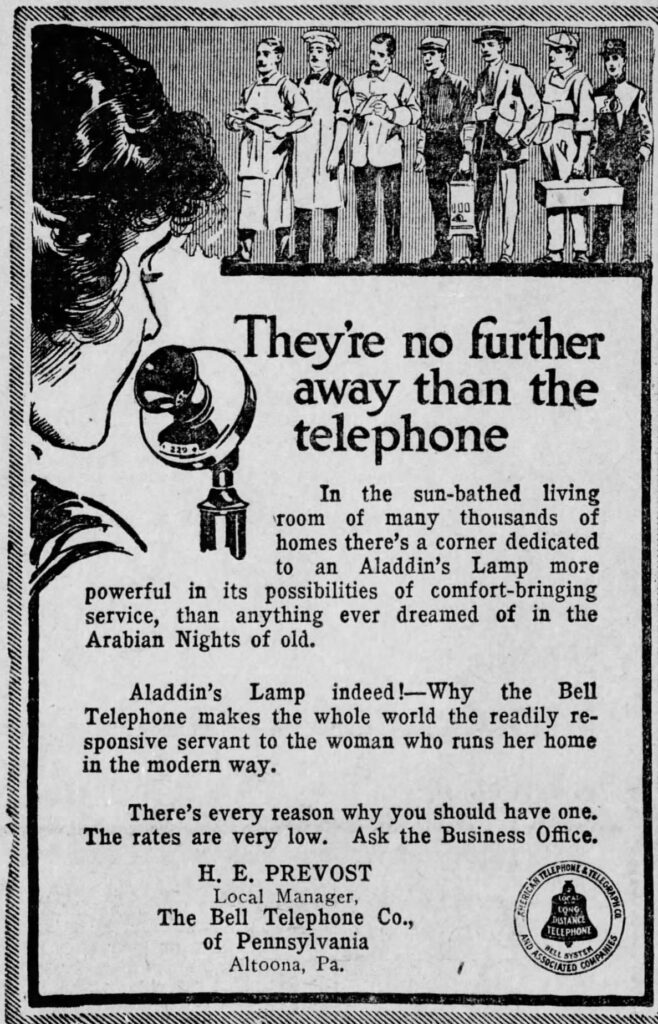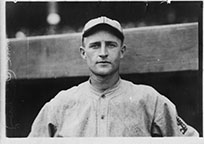Bill Doak, of Knoxville, is the greatest pitcher in the National league. So declares Manager Miller Huggins, of the Cardinals, and Manager John McGraw of the Giants strongly intimates that he is of the same opinion. A pretty strong assertion to make for a youngster after his first year out in the big show, but the records will prove it. True enough, two pitchers in the National league won a greater percentage of their games – they were James and Rudolph, of the Braves. But John Heydler’s records showing the standing of pitchers based on effectiveness, show Doak winning nineteen games, losing six and having the least number of runs earned off him in nine inning games. The record established made him the best pitcher in the league.
For a youngster, Doak’s performance was startlingly effective and his record holds easy comparison with the big stars, Alexander, Tesreau, Salee, Mathewson, James, Rudolph and Vaughn. The young Missourian really has a shade on them all.
James, of the Braves, finished second, with 26 victories and 7 defeats, while Alexander wound up tenth, with 27 triumphs and 15 reverses. Mayer, of the Phils, secured 21 wins and 19 losses, while Ben Tincup grabbed 8 scalps and let 10 slip away. Matteson won 3 and dropped 2, while Baumgartner is credited with 2 triumphs and as many jolts. Cy Marshall won 6 and lost 7, while Eppa Rixey got the long end twice and fell short 11 times. Most of the work Matteson, Baumgartner, Marshall and Rixey did to earn their stipend was in helping out other Phil pitchers or else ceasing to pitch, after starting, in some other fellow’s favor.
And yet no one has picked Willie Doak on any All-National team or anything like that. Nobody has offered him a bonus for the use of his name to boost a brand of tobacco, and he hasn’t even gone into vaudeville. In fact, Willie Doak has dropped quite out of sight for the winter. True, when he returned to his home the little surburban church of which he is a member gave him a reception, but that is all. Outside of a few lines in the papers telling that the Sunday following his return home he resumed his place as teacher of the men’s Bible class in his Sunday school no one has heard anything about him.
He Is Modest.
Modesty is Willie Doak’s most distinctive trait and it coincides with his entrance into the big show. There was no blare of trumpets when Doak broke in. Scout Eddie Herr arrived in the Cardinal camp with Doak in tow one day in mid-season and introduced him to Manager Miller Huggins,
“Where’d you get him?” asked Huggins.
“Picked him up at Akron,” answered Scout Herr. Mark down sale; league busted; only cost $500 and I took a chance.”
“Looks like a long one; he doesn’t seem to have the makings of a major league pitcher, not from appearance,” said Huggins.
“Record pretty good at Akron; only $500,” responded Herr, laconically.
Willie Doak moved around as softly as a mouse for a while. The catchers who worked him out didn’t report any too favorably to Huggins. Not much speed, not much of anything, in fact, except a very serious purpose and a strict attention to advice given him.
Doak got into a few games and occasioned much surprise at the showing he made in them. “He can’t last,” said the critics. “Too frail; pitches himself out with every ball he throws.”
Huggins took a fancy to the serious-minded young man. He figured too that Doak would have to develop something particularly adapted to his light physique. “Can you pitch a spit ball?” Huggins asked his youngster.
“I have never used it, but I will try it, Mr. Huggins,” answered the young man, gravely.
“We’ll make a spitter out of you and change your style so as to save your strength more,” said Huggins.
Conservation and Efficiency.
Result, Mr. Doak becomes a spit ball pitcher. He no longer breaks every time he throws a ball. As a conservator of energy he is a marvel. His ease and grace is a delight. He has demonstrated that for him at least there is no harm to a pitcher in throwing the spit ball. And as for its effectiveness, the records will tell.
Doak says Huggins’ careful coaching has made him the wonderful pitcher he is. Huggins smiles, and says the credit for Doak belongs to Eddie Herr. The scout passes the buck along.
“Only $500,” he says, laconically. “Worth taking chance. He’d been disappointed a couple of times, too, and he was so serious about getting a trial that I took to him. Larry Sutton, Billy Doyle and Bob Gilks turned him down before I took a look at him. Said his catcher was really the best part of his work. So I bought his catcher, too. Thought he might not be able to work without his catcher. Doing it pretty well, though, isn’t he?”
And then Herr mumbles, as if to himself, “Only cost $500, too, and the Akron people were afraid I wouldn’t buy him.”
Ads of the Day: Bell Telephone encouraging adoption of telephones in the home. Very useful for Bill Doak as he travels the country.

